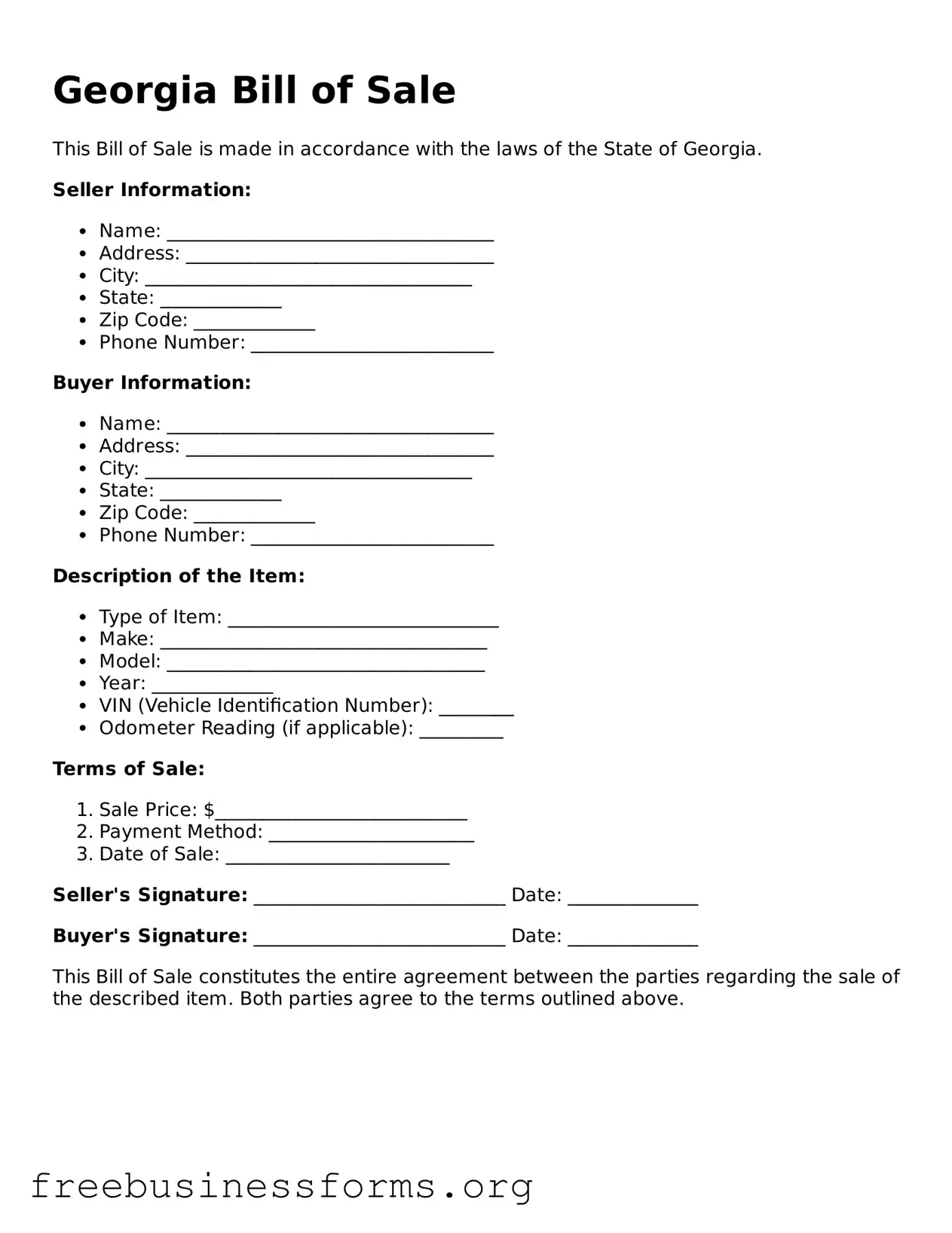Blank Bill of Sale Template for Georgia
A Georgia Bill of Sale form is a legal document that records the transfer of ownership of personal property from one party to another. This form serves as proof of the transaction and can protect both the buyer and seller by clearly outlining the terms of the sale. Understanding its components is essential for anyone involved in buying or selling items in Georgia.
Open Form Here

Blank Bill of Sale Template for Georgia
Open Form Here

Open Form Here
or
↓ PDF File
Quickly complete this form online
Complete your Bill of Sale online quickly — edit, save, download.